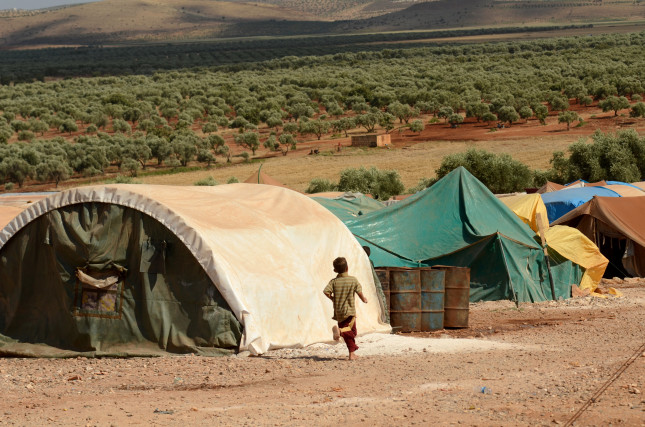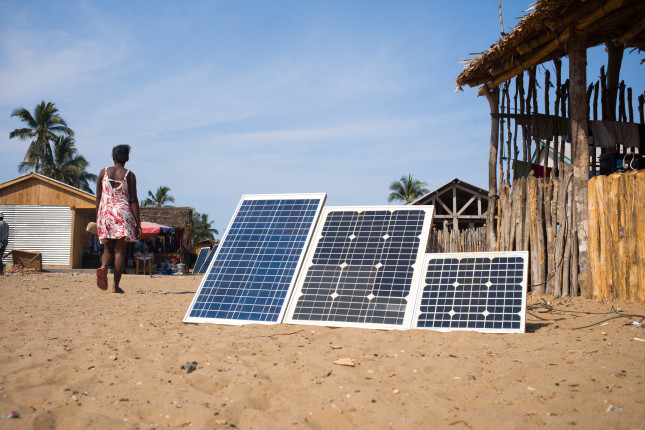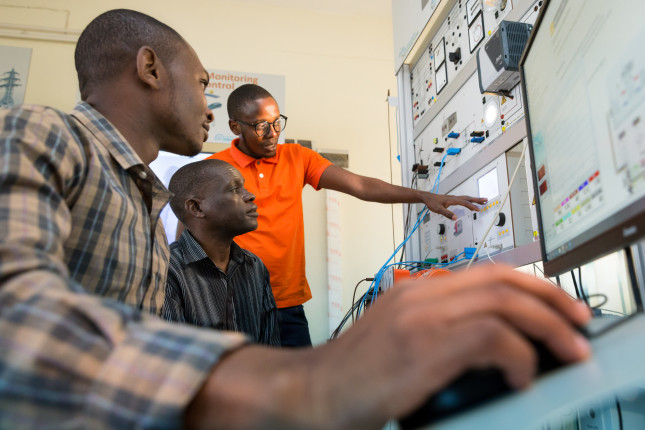-
ECSP Weekly Watch | September 11 – 15
›
A window into what we are reading at the Wilson Center’s Environmental Change and Security Program
Treading Water: Why Were Libya’s Floods So Devastating?
This week’s devastating disasters in Morocco and Libya underscore the cascading effects of environmental shocks (and in the case of Libya, climate-related shocks), as well as the cross-sectoral response needed to comprehensively address the damage.
-
Climate Adaptation at COP28: Eyes on the Middle East
›
When COP28 begins in the United Arab Emirates in late November of this year, the multifaceted connections between climate and conflict are expected to receive greater attention from participants than they have at previous conferences.
While there is scant direct causal evidence to suggest that climate change causes conflict, there is a growing body of information that it can influence the risk of conflict by hurting economies, changing broad patterns of human behavior and movement, and straining social cleavages.
-
ECSP Weekly Watch | September 4 – 8
›
A window into what we are reading at the Wilson Center’s Environmental Change and Security Program
Peace and Prosperity in the Sahel: Climate Security is Key
Liptako-Gourma is a landlocked region located on the borders of Burkina Faso, Mali, and Niger. It possesses significant mineral, water, and biodiversity resources, and strategically positioned for both economic opportunities and cultural exchange.
-
ECSP Weekly Watch | July 24 – 28
›
A window into what we are reading at the Wilson Center’s Environmental Change and Security Program
Fixing the World’s Broken Food Systems
The United Nations summit on the state of the world’s food systems took place in Rome, Italy, this week, building on the work of a previous convening in 2021. The meeting focused on the environmental impact of agriculture and making food production more sustainable.
-
Want to Beat Global Warming? Beat Global Indebtedness First
›
The world has a sobering debt problem. In the wake of the COVID-19 pandemic, Russia’s invasion of Ukraine, and the ensuing shocks to commodity prices, governments everywhere have borrowed enormous sums to promote stability and kickstart recovery.
-
ECSP Weekly Watch | July 17 – 21
›
A window into what we are reading at the Wilson Center’s Environmental Change and Security Program
Extreme Heat’s Toll on Pregnancy and Reproductive Health
Preliminary data collected by the World Meteorological Organization (WMO) shows that the first week of July 2023 was the hottest week on record. Recent global heatwaves also prompted a public health alert from the WMO concerning rising health risks.
-
A U.S. Nonprofit Aims to Reduce Emissions of a Super Climate Pollutant from Chemical Plants in China
›A new initiative by the Climate Action Reserve, a nonprofit organization based in Los Angeles, could play a significant role in curbing emissions of a potent climate pollutant from chemical plants in China while filling a gap in international climate agreements and China’s environmental regulations.
-
What Will Change at the World Bank Mean for Climate Policy?
›
World Bank President David Malpass announced his resignation in mid-February 2023, and will step down by June 2023—about a year before finishing his five-year term. As several public officials indicated after the announcement, the climate legacy Malpass leaves behind is lacking. Indeed, the Bank itself has also been under scrutiny with recent calls for reform on climate finance.
The Biden Administration quickly announced Ajay Banga as their nominee in mid-February. If confirmed, Banga will step into this role in a high-profile moment, and his own stance on climate issues is already under close examination.
Showing posts from category climate finance.








